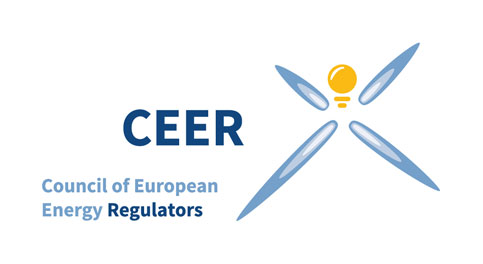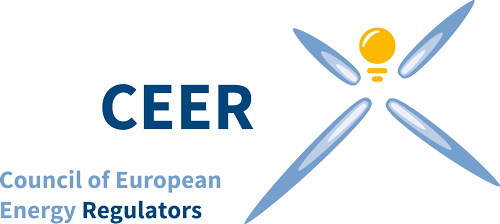September 2017

Editorial
 Congratulations to Garrett Blaney who has been elected the new CEER President. Mr Blaney, a member of the Irish national regulatory authority, is also the new Chair of the Board of Regulators of the EU Agency, ACER. He succeeds Lord Mogg (from early November) in heading up the European Energy Regulators (see Press Release).
Congratulations to Garrett Blaney who has been elected the new CEER President. Mr Blaney, a member of the Irish national regulatory authority, is also the new Chair of the Board of Regulators of the EU Agency, ACER. He succeeds Lord Mogg (from early November) in heading up the European Energy Regulators (see Press Release).
Protecting all consumers is a core part of CEER's work. In our view, well-functioning and well-regulated wholesale and retail markets are the best way to do it. It is also why our recent CEER White Paper on Renewable Self Consumers and Energy Communities underlines that renewable self-consumers and local energy communities should be designed to protect both active and vulnerable customers.
Empowering consumers in competitive wholesale and retail markets, delivering on the renewables agenda by making Europe's electricity markets fit for purpose and having the right regulatory framework for local energy communities were very much in focus at the CEER 2017 Annual Conference "Powering Towards Clean Energy in Europe" held this month. For a quick overview of regulators' positions on the Clean Energy package see the Feature below (with more detail in our Clean Energy Regulatory White Papers).
Save the Date:
02 October, 2017. PEER Regulatory Roundtable on Bundled Products
24 October, 2017. ACER-CEER Market Monitoring Report launch event
28 November, 2017. CEER Annual Customer Conference
20-23 March, 2018 for the World Forum on Energy Regulation in Cancun, Mexico.
Regulators’ Clean Energy Positions (in brief)
Europe's energy regulators welcome the Clean Energy proposals including its drive towards integrated and competitive wholesale markets that provide the right price signals, designing energy markets to cater for more renewables, and its initiative to empower consumers to engage in the market as active consumers or prosumers. All of these are needed to deliver the Clean Energy package's renewables agenda securely and competitively.
A simple set of principles drives CEER's views on the Clean Energy Package. We always seek to
- protect consumers by maintaining and enhancing security of supply
- promote competition and ensure a level playing field
- promote efficiency and cost effectiveness
- ensure rules are underpinned by a proportionate and flexible regulatory regime
CEER's 5 main Clean Energy positions:
1. Consumer Issues
- Supplier Switching within 24 hours
Supplier switching is a key way for consumers to benefit from the EU's energy market driving better price, choice and service. CEER recommends a more ambitious target than the current 3-weeks (already mandated) so that a switch can be completed within 24-hours on a working day.
-Keep consumer bill information simple
Billing information should be clear, understandable and based on actual consumption. A one-size-fits-all standardised bill is not appropriate. Instead, CEER supports minimum requirements for bills that allow suppliers to differentiate.
2. Electricity Market Design
- Allow scarcity pricing
CEER supports proposals that will make sure prices reflect market conditions. This means removing price caps, encouraging scarcity signals so that the price is allowed rise to the value of the lost load (VOLL). This will help unlock demand side participation.
- All participants should have balance responsibility
It is important that all wholesale market participants face the same price signals from the balancing energy markets. We believe all market players (including renewable generators) must be balance responsible. This is in order for there to be a level playing field between technologies and to diver strong market liquidity and fair/efficient prices signals.
- No minimum interconnection target
In our view the proposed single interconnectivity target of 15% for each Member State could result in perverse incentives and inefficient outcomes, and should be removed. Instead, interconnection development should be based on costs and benefits (and not on the basis of “one-size-fits-all” interconnection target across the EU). There should also be flexibility in the use of interconnector congestion income.
- Maintain flexibility for non-frequency ancillary services
There should be a level playing field for delivery of non-frequency related ancillary services, fair compensation for its provision and appropriate coordination between DSOs and TSOs in accessing these services.
- Demand-side flexibility
Market access for aggregators should not be foreclosed by suppliers and arrangements should provide for payments for resold energy ("compensation").
3. Distribution
- DSOs should not own storage or EV charging stations
Regulators welcome the proposals on Distribution System Operators (DSOs) but emphasise that DSOs should act as a neutral market facilitator including in procuring and accessing flexibility. Hence, DSOs should not own assets such as storage & Electric Vehicle (EV) charging stations which are competitive activities.
- No need for an EU-wide Tariffs Network Code
CEER welcomes the Clean Energy proposals requiring network tariffs that are cost reflective and give appropriate incentives but there is a need to maintain a flexible local approach and not move to distribution tariff harmonisations/Network Code at EU level. Similarly, there should not be a mandatory approach for regulatory incentives on DSOs. There is a need for better planning and coordination including between the new EU DSO body and ENTSO-E.
4. Renewables
Europe’s regulators are committed to making Europe’s electricity market better accommodate and reward renewable generators. For example, we call for the Clean Energy Package to help deliver cross-border market integration and wholesale pricing that better reflects electricity supply and demand, which will help integrate renewables into the market and reward them appropriately.
Remove priority dispatch for existing (as well as new) RES plants
We believe that the cheapest generators should run, irrespective of technology, so as to minimise consumers’ bills. This is why ACER and CEER call on Europe’s legislators to use the opportunity of the Clean Energy package to remove a distortion (priority dispatch for any generation technology, for both old and new plant). In a well-functioning market, Renewables (e.g. wind and solar) which have zero marginal cost will in any case run before other technologies.
Renewable Self-Consumers and Energy Communities
CEER supports efforts to help consumers engage in energy markets either as active consumers or collectively through energy communities. We want to see that the regulation of renewable self-consumers and energy communities protects consumers’ rights, that network tariffs are cost reflective and that there is a fair allocation of costs with prosumers paying their fair share of system and network costs (with no net metering).
4. Regulatory independence and oversight
Safeguarding the regulatory independence of national regulatory authorities (NRAs) and having a strong ACER Board of Regulators is important to ensure proper governance in relation to EU energy policy.
Our series of (12 short) Clean Energy Regulatory White Papers outline regulators’ (ACER and/or CEER) positions on wholesale, network, regulatory and consumer elements of the Clean Energy legislative proposals.
What's Next?
The CEER Customer Conference (28 November) addresses Clean Energy customer and retail market issues
Public Consultations and Events
Visit our website for our future consultations and events.
02 October, 2017. PEER Regulatory Roundtable on Bundled Products
24 October, 2017. ACER-CEER Market Monitoring Report launch event
28 November, 2017. CEER Annual Customer Conference
Publications
CEER Regulatory White paper: Renewable Self-Consumers and Energy Communities
Press Releases
- PR-17-06 Garrett Blaney is elected CEER President (2017-09-20)
- PR-17-05 Energy regulators call on EU law-makers to shape the right regulatory framework for Self-Consumers and Local Energy Communities (2017-09-19)
International
The next World Forum, an international energy regulatory conference held every 3 years, will be in Cancun, Mexico (20-23 March).
Contact
Tel: +322 788 7330 or
+ 32 484 668 599

